Elementary
Learning How to Think
(6 - 12 years)
Montessori Elementary Program (Ages 6–12) | Aquinas Montessori School – Mount Vernon Campus
At Aquinas Montessori School’s Mount Vernon Campus in Alexandria, Virginia, our Montessori Elementary program serves children ages 6 to 12 in a rich, dynamic, and intellectually stimulating environment. Families in Fairfax County, Fort Hunt, Belle Haven, and Old Town Alexandria choose our program for its strong academics and whole-child development. Building on the foundation laid in the Primary years (ages 2.5–6), the Elementary child’s request becomes, “Help me to understand the world!”
A Cosmic Education: Inspiring Lifelong Learners
Between the ages of 6 and 12, children become curious, imaginative thinkers who want to understand the world around them. Our Alexandria Montessori elementary curriculum meets this need by offering interdisciplinary, experience-based learning designed to spark curiosity and foster a love of learning.
Guided by the foundational Montessori principle of “cosmic education,” children are introduced to the universe and their place within it. Through storytelling, impressionistic charts, and hands-on materials, students explore subjects such as:
- Mathematics and geometry
- Language arts and creative writing
- Science and biology
- Geography and history
- Art, music, and cultural studies
A Child-Centered Approach to Learning
At Aquinas Montessori School, elementary students work in multi-age classrooms where they receive individualized lessons based on their readiness and interests. With guidance from AMI-trained Montessori teachers, children set their own academic goals, manage long-term projects, and develop strong time-management and problem-solving skills. Their natural drive to learn is honored through individualized instruction and self-paced study.
Social and Emotional Development
Montessori elementary students often work in collaborative groups, reflecting their growing social awareness and interest in community. Our teachers serve as mentors and facilitators, guiding children as they navigate friendships, resolve conflicts, and develop leadership, empathy, and communication skills. These interactions help nurture a sense of justice and fairness, which is critical at this developmental stage.
Academic Excellence and Whole-Child Growth
Our Montessori curriculum exceeds traditional academic standards while emphasizing critical thinking, creativity, independence, and moral development. Children are encouraged to take intellectual risks, persist through challenges, and take pride in their work. The result is a child who is not only academically capable but also socially and emotionally prepared for life beyond the classroom.
Why Choose Montessori for Ages 6 to 12?
- Individualized learning plans tailored to each child
- Experienced AMI Trained educators
- Emphasis on independence, responsibility, and intrinsic motivation
- Integrated hands on curriculum
- Strong foundation in math, science, language arts, geography, and the arts
- Encourages deep understanding over rote memorization
- Fosters real-world skills like problem-solving, time management, and teamwork
- Serving Alexandria, Old Town, Mount Vernon, Fort Hunt, Belle Haven, and Fairfax County families
Visit Our Alexandria Campus
Located in the heart of Alexandria, Virginia, Aquinas Montessori School’s Mount Vernon Campus is proud to offer a nurturing and challenging Montessori environment for elementary students. Schedule a tour today to see how our Montessori elementary program in Alexandria can support your child’s growth during these critical formative years.
The Elementary Classroom
At Aquinas Montessori School’s Mount Vernon Campus, children in our elementary program (ages 6–12) thrive in multi-age classrooms designed to support their independence, curiosity, and growth. Guided by AMI-trained Montessori educators, students receive individualized lessons based on their interests and readiness, allowing them to progress through the curriculum at their own pace.
The elementary years are rich in collaborative learning. Students frequently work together in small groups, explore big ideas across subjects, and engage in dynamic, hands-on learning. The classroom culture fosters intrinsic motivation, intellectual risk-taking, and pride in one’s work. They learn to manage long-term projects, set personal goals, and develop essential life skills such as time management, focus, and problem-solving.
A Montessori Experience Rooted in Community
The Aquinas Montessori Mount Vernon Campus in Alexandria, VA includes two Lower Elementary classrooms (ages 6–9) and one Upper Elementary classroom (ages 9–12), all maintained according to AMI standards. Classrooms are carefully prepared to encourage exploration, independence, and collaboration across academic areas including math, language, science, history, geography, and the arts.
In addition to the core Montessori curriculum, students enjoy:
- Weekly Spanish and Physical Education (PE) classes.
- Great Books Program (grades 1-6). A discussion-based reading program that builds critical thinking, comprehension, and communication skills through classic and contemporary literature.
- Classics Club (grades 3-6). A monthly afterschool club focusing on classic and award-winning literature.
- Drama Club (grades 4-6). An afterschool program with recent musical productions including Mary Poppins Jr., Matilda Jr., and Newsies Jr.
Elementary School Schedule and Extended Care
- Arrival: 8:30 AM
- Dismissal: 3:00 PM
- Before Care: 7:30–8:30 AM
- After Care: until 6:00 PM
Our structured school day allows children to complete the majority of their academic work at school. This supports a balanced family life at home, with time for play, reading, shared meals, and practical life activities like cooking and gardening.
Welcoming New Students to Montessori Elementary
While most of our elementary students continue from our Montessori Primary program (ages 2.5–6), we warmly welcome new students, especially those entering first through third grade or those with previous Montessori experience.
Students joining us for the first time are introduced to the freedom and responsibility that define Montessori education. They delight in the ability to choose their own work, follow their interests, and engage in in-depth projects that support both academic and personal growth. Collaborative work is encouraged, allowing students to learn from one another and develop strong social skills.
With the support of AMI-trained teachers and a thoughtfully prepared environment, new children are gently guided into classroom routines and quickly become active members of the learning community. Many parents are amazed at how quickly their child becomes confident, curious, and independent—traits that are nurtured daily in our Montessori elementary classrooms.

